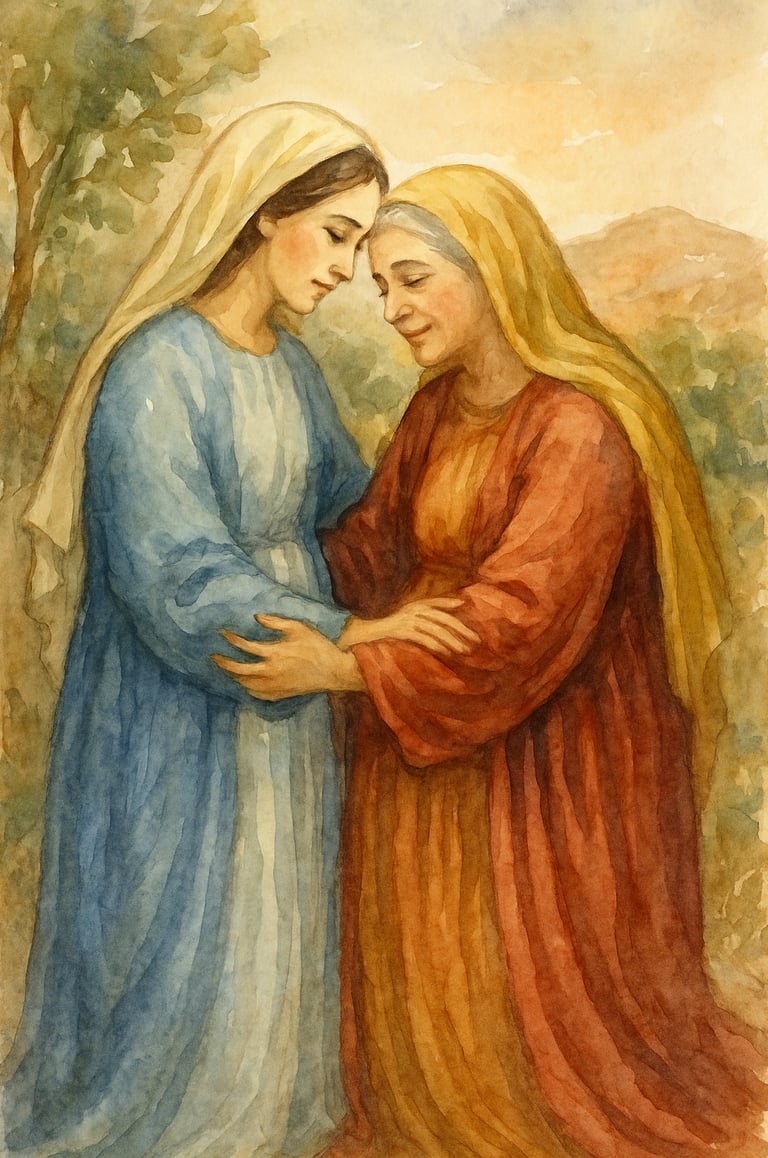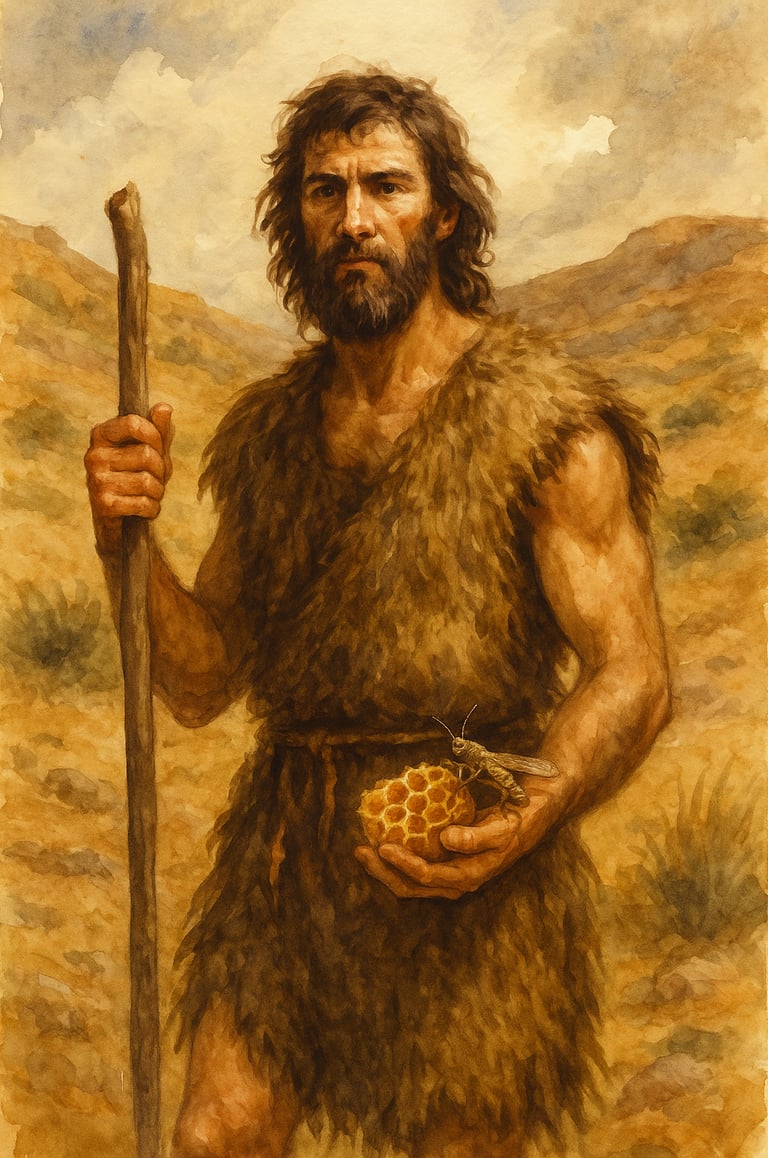St. John the Baptist: The Forerunner of the Messiah
St. John's role in salvation history and witness to the unborn
Halo & Light Studios
6/24/20253 min read


Click Link for a reel of Daily Dose of Saints and Faithful Art:
https://youtube.com/shorts/IY1Z_S88p94?feature=share
In the grand drama of salvation history, few figures stand as tall—or as humble—as St. John the Baptist. As the bridge between the Old and New Covenants, John is the final prophet of Israel and the herald of the Incarnate Word. Jesus Himself declared, “Among those born of women, none is greater than John” (Luke 7:28).
John’s mission was foretold by Isaiah—“A voice cries out in the wilderness: Prepare the way of the Lord!” (Isaiah 40:3)—and again by Malachi: “Behold, I will send you Elijah the prophet before the great and awesome day of the Lord” (Malachi 4:5). His purpose was to prepare hearts to receive Christ.
Tradition tells us John was born near Ein Kerem, just outside Jerusalem, to Zechariah and Elizabeth. A Franciscan church, St. John in the Mountains, marks the site today. When the Blessed Virgin Mary visited Elizabeth during their pregnancies, John leapt in the womb at the presence of the unborn Christ (Luke 1:41). This moment reveals the dignity of unborn life and the mystery of divine calling from conception—John was sanctified before birth.
John lived simply, clothed in camel’s hair and sustained by wild honey and locusts (Mark 1:6), echoing the spirit of Elijah. Yet his greatness lay not in spectacle or approval, but in humility and purpose: “He must increase; I must decrease.” (John 3:30)
Though his baptism was a sign of repentance and not sacramental grace, it was John who baptized Jesus and witnessed the Theophany—the voice of the Father, the Spirit descending like a dove, and the Son revealed in humility (Matthew 3:13–17). This sacred moment launched Christ’s public ministry.
Later, John was imprisoned and executed by Herod Antipas for speaking truth about marriage. Saints like John Fisher and Thomas More, persecuted under King Henry VIII for similar reasons, no doubt drew strength from John’s example. He fulfilled his mission: to point to Christ and prepare His way. In the words of the Church: “John surpasses all the prophets, of whom he is the last. He inaugurates the Gospel… and shows the Lamb of God.” - — Catechism of the Catholic Church, 719
Today, St. John the Baptist remains a prophetic voice—especially for the unborn, who are tragically silenced in a world that has forgotten the sacredness of life. Just as he leapt in the womb at the presence of Christ, John testifies to the personhood and dignity of every child from the moment of conception.
Each year, over 73 million abortions occur—roughly 200,000 every day worldwide. Under the banner of "choice," the world is losing prophets, missionaries, saints, mothers—souls known by God and created for a divine mission. This is not merely a political issue. It is a spiritual crisis.
“Before I formed you in the womb, I knew you, and before you were born, I consecrated you.” (Jeremiah 1:5) The womb—intended as the safest sanctuary—has become a battlefield. The most vulnerable are sacrificed by the very ones called to protect them. Every child is a unique, unrepeatable expression of God’s love.
If you claim to be Catholic while defending abortion, know that you are not defending the Gospel—you are rejecting it. This is not a gray area. It is a grave moral matter. The cultural narrative that equates freedom with the right to destroy innocent life is a counterfeit gospel. True freedom is the ability to live the mission God has entrusted to each soul—and to protect that mission in others.
Yet the Church, like her Savior, proclaims mercy and healing. To those who have believed the lie of abortion: there is hope, there is healing, and there is forgiveness. Come home. You are not beyond mercy. The Church offers ministries such as Project Rachel—a confidential and compassionate outreach to those wounded by abortion. These programs help mothers and fathers find peace, restoration, and reconciliation through the mercy of Christ.
St. John the Baptist shows us what true discipleship looks like:
Prepare the way for the Lord
Speak the truth, no matter the cost
Decrease, so that Christ may increase
His voice still echoes through time—crying out in our own wilderness: “Make straight the way of the Lord.”


